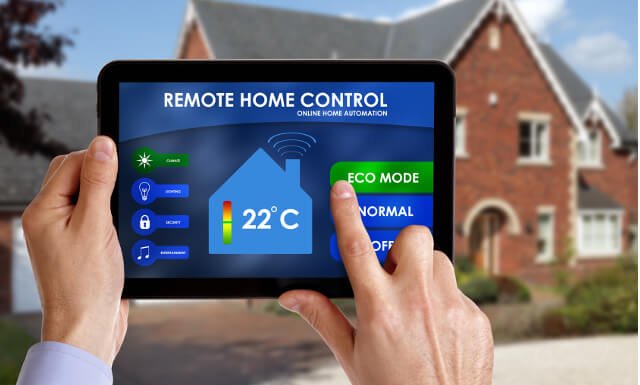In today’s fast-paced world, the demand for convenience and efficiency extends to every aspect of our lives, including the way we heat our homes. Smart heating systems are revolutionizing the way we control indoor temperatures, offering unparalleled convenience, energy savings, and comfort. In this blog, we’ll explore the world of smart heating, from how it works to its benefits and considerations for implementation.
1. Understanding Smart Heating:
Traditional heating systems rely on manual adjustments and preset schedules to regulate indoor temperatures. In contrast, smart heating systems utilize advanced technology to automatically adjust heating settings based on factors such as occupancy, weather conditions, and user preferences. These systems typically consist of smart thermostats, sensors, and connectivity features that enable remote control and automation.
2. How Smart Heating Works:
Smart heating systems employ a combination of sensors, algorithms, and connectivity to optimize heating efficiency and comfort:
- Smart Thermostats: The central component of a smart heating system is the smart thermostat, which replaces traditional thermostats and allows for remote control and scheduling via smartphone apps or voice commands.
- Sensors: Smart heating systems may incorporate various sensors, such as occupancy sensors, temperature sensors, and humidity sensors, to gather data about the indoor environment and adjust heating settings accordingly.
- Connectivity: Smart heating systems connect to home Wi-Fi networks, enabling communication between devices and remote access via smartphone apps or voice assistants like Amazon Alexa or Google Assistant.
3. Benefits of Smart Heating:
Smart heating systems offer several advantages over traditional heating systems:
- Energy Efficiency: By automatically adjusting heating settings based on occupancy and weather conditions, smart heating systems can reduce energy consumption and lower utility bills.
- Customization: Smart heating systems allow users to create personalized heating schedules and settings tailored to their preferences, ensuring optimal comfort and control.
- Remote Access: With remote access via smartphone apps, users can control their heating systems from anywhere, anytime, giving them peace of mind and flexibility.
4. Considerations for Implementation:
Before investing in a smart heating system, there are several factors to consider:
- Compatibility: Ensure that the smart heating system you choose is compatible with your existing HVAC equipment and home automation ecosystem.
- Installation: Depending on the complexity of the system, installation may require professional assistance to ensure proper setup and integration with existing infrastructure.
- Cost: While smart heating systems can offer long-term energy savings, they may require an initial investment upfront for equipment and installation.
Final Words:
Smart heating systems represent the future of home comfort and energy efficiency, offering unprecedented convenience, control, and savings. By leveraging advanced technology and connectivity, these systems optimize heating performance while minimizing energy consumption and environmental impact. Whether you’re looking to reduce your carbon footprint, enhance comfort, or simply streamline your heating system, smart heating is a smart choice for modern homeowners.
